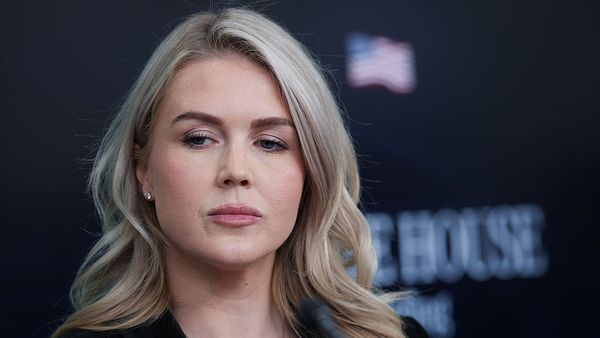
It has been eight long years since Daniel Day-Lewis last graced the screen, after the filming of 2017’s Phantom Thread left him “overwhelmed by a sense of sadness”. Retirement, it turns out, was more “retirement”, an extended bit of rest and recuperation for another gauntlet. Anemone, the three-time Oscar winner’s quote-unquote comeback film and the feature directorial debut of his son Ronan Day-Lewis, is an even less sunny experience. (At least for the viewer; Day-Lewis has described filming with his son as “beginning to end, just pure joy to spend that time together with him”.) In fact, it’s gray-skies-only for the film’s plodding two hours, the better to hammer home the point of roiling disquiet within, to quote the logline, “the complex and profound ties that exist between brothers, fathers, and sons”.
Father and son, who co-wrote the script set in the late 1980s, seem aligned on the somber task of peeling back what has not been said for two generations of stoic, war-torn men. Anemone – a title that, like the film, is vaguely symbolic and overly portentous – settles in like fog on the northern English coast: at once heavy and weightless, overcast with dour import. It starts with a prayer (from Sean Bean, face creased with unrelenting seriousness) and proceeds into the mist of unexpressed trauma, over-communicated in close-up shots of bloody knuckles, blank walls and truncated torsos.
It’s a bleak mood, at times effective – I occasionally found myself aching for a hug – and more often alienating. To be fair, Day-Lewis’s Ray Stoker is a bitter pill. A lone wolf driven into self-imposted exile in the Yorkshire wood by a mysterious trauma 20 years earlier, he’s gruff and sour, foul-tempered and foul-mouthed (his first monologue, transfixing as ever, was so filthy in content that it provoked more than one swear from the audience). Day-Lewis, an actor of singular intensity born to portray a man of singular isolation, makes a meal out of him, ferociously needling his long-estranged brother Jem (Bean) as if he’d never left.
After a full term of pregnant, woodsy silences, the stakes come creeping in. Jem seeks reconciliation on behalf of his wife, Nessa (Samantha Morton), Ray’s former lover, and his son Brian (Samuel Bottomley), a young man visibly corroded with anger whose origin soon becomes clear; Ray, haunted by his time as a British paramilitary in Northern Ireland in the 1960s, seeks continued disappearance. (Nessa, as well as Brian’s brief love interest, played by Safia Oakley-Green, do little more than offer the female-coded antidotes of patience, yearning and tenderness.) Both reckon with the trauma of the past, thunderously delivered in blunt confessions, ear-splitting deluges of spectral chords, and flourishes of magical realism that, with the exception of one PTSD-flagging nightmare, fail to communicate anything beyond the desire to be serious. “Didn’t have much of a father, did we?” Ray asks his brother, referring to both the blood and the cloth, the sins of both neither surprising nor sticky.
That is, until Day-Lewis delivers them, with two mesmerizing monologues that briefly allow the project to transcend theme into deliverance. Son knows how to film father, tightly framing the actor’s imperious countenance in shadow, either blocking or, in one exquisite shot, allowing glinting firelight. When the dam on his silence finally breaks, in one hard-earned, gutting scene of gruesome confession, you are right there with him in the muck, close but still estranged, hanging on to every word.
But that cinematically triumphant moment is quickly swallowed again by the booming sense of Import, a literal storm to convey the potentially damaging emotional turmoil swirling in the atmosphere. The younger Day-Lewis shows promise as a film-maker – Anemone certainly looks serious, the correct scowls and swirling skies and wordless, eerie montages to suggest weighty themes, big emotions and ominous suspense. The tools to back up that style with emotional punches that land like the real ones of the brothers – best believe they tussle it out, because of course – are not yet refined, but in this father-son duo, at least, I have faith.
Anemone is screening at the New York film festival and is out in US cinemas on 3 October, in UK cinemas on 7 November and in Australia on 5 February







